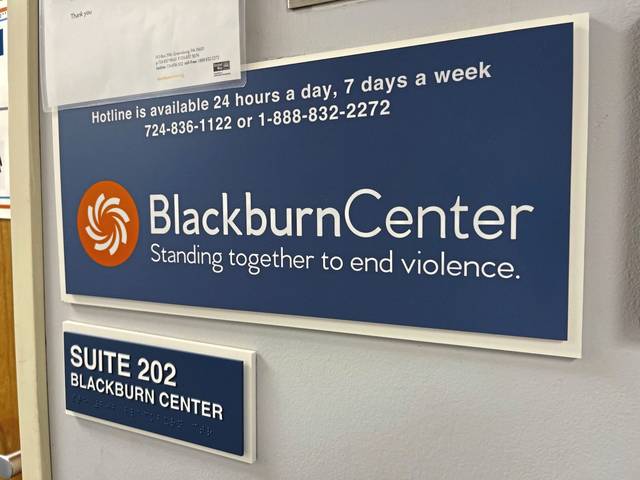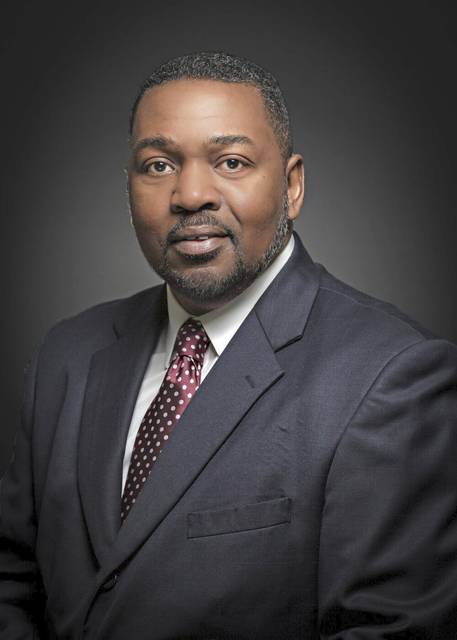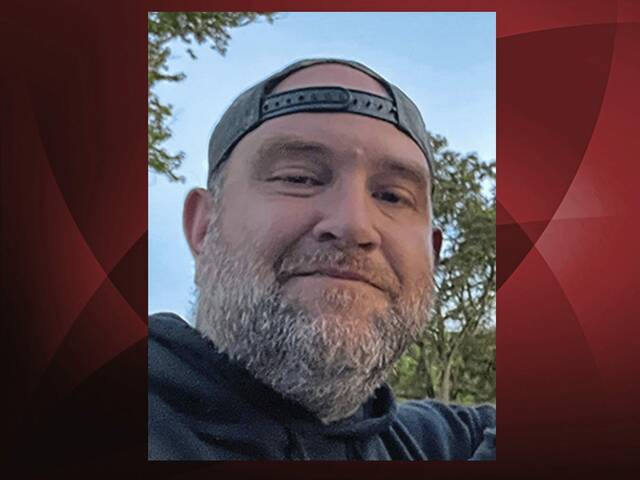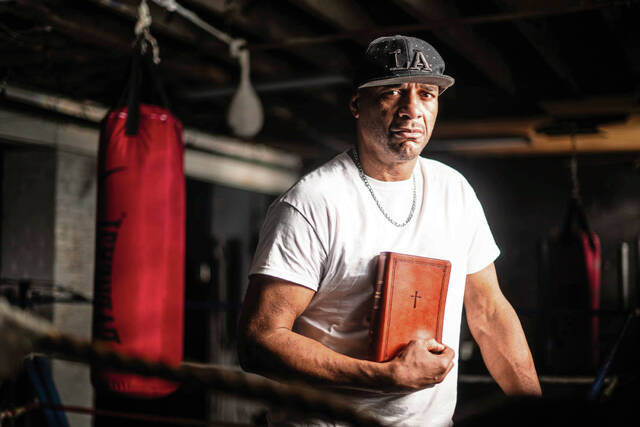Through a new partnership with the Greensburg-based Blackburn Center, Rickie Houston is set to speak with athletes at local colleges this fall regarding sexual and domestic violence, as well as mental health.
Houston is the director of training for A Call to Men, a national organization that works with men around the world in professional sports, the military and government to educate them about gender-based violence and discrimination.
According to Houston, men follow an “unwritten” set of societal rules throughout their lives, which he calls the “Man Box.” These rules, he says, promote emotional stoicism, discourage asking for help and dictate the way men treat and view women.
“Whether we want to or not, we know we have to be in that box,” Houston said. “When we tell boys they can’t cry at an early age, what we’re really doing is telling them not to feel.”
During his program, Houston said he will work with the mento “deconstruct” and begin to unpack the “Man Box” with the goal of engaging men to be “part of the solution to end violence against women.”
And that’s the Blackburn Center’s mission.
Julie LeVan, systems and campus advocate for the center, said she works with local colleges to host welcome week activities, individual training with resident assistants, online dating and relationship presentations and Title IX, bystander and sexual and domestic violence response programs.
The Blackburn Center usually provides these various programs at Seton Hill University, the University of Pittsburgh at Greensburg, Saint Vincent College, Westmoreland County Community College, Penn State New Kensington and the Douglas Education Center. Along with educational programs, the Greensburg-based center provides services directly to victims of violence.
“There’s this big gray area,” LeVan said. “Most people are not perpetrators of violence, but they still have a responsibility … Are you being an active bystander?”
“(Athletes are) definitely leaders on campus,” LeVan said, and she hopes any change inspired by Houston will “cause a ripple effect.”
She said she believes “holding each other accountable” for distasteful jokes and like behaviors begins with college sports teams due to their widespread influence on campuses.
However, LeVan said she believes “the players can only do so much if the coaches are saying they’re playing like a girl,” which is why coaches also will be present during the sessions.
“Being able to talk to athletes about sexual violence and domestic violence … some shut down and stop listening, (but) instead, engaging them as those active bystanders,” LeVan said. “Behaviors and attitudes lead to the normalization of this kind of thing happening. People are numb to it because it happens all the time, (but it doesn’t) happen without bystanders’ allowance.”
“(If I’m) not using my voice to speak up, then I’m part of the problem,” Houston said. “The reason I love talking to athletes … (is) oftentimes these are the students that others look up to, they have influence.”
Cassie Ellson, community education coordinator at the Blackburn Center, said a lot of what the student athletes will learn is related to leadership skills, which she said she believes can play a role in violence prevention.
“There are things (college athletes) can do,” Ellson said. “They can model for other people that can help to eliminate violence or assault on (campuses).”
College and professional athletes face mental health issues of their own in relation to the “Man Box,” Houston said.
“Look at the pressure we put on athletes,” Houston said. “It’s almost like we dehumanize them.”
It’s become commonplace for athletes to feel they can’t ask for help or have an off day, Houston said, due to outside pressure from fans, parents, coaches, scholarships or signing bonuses. This can lead to traumatic experiences that might not even be recognized until later down the line, Houston said.
“There’s so many different levels that we put on people that they really can’t breathe,” Houston said. “(People) do things they don’t want to do because (they) want to feel included.”
Houston said he believes women and girls will feel safer and more valued if men increasingly become educated about “healthy masculinity.”
“Mental health is in the background of everything,” LeVan said, and she believes having “support and empathy” for instances of dating violence and sexual assault is paramount.
LeVan said if someone discloses a personal experience, the best response would be to say, “I believe you.”
“That’s really important for college campuses,” LeVan said. “I think there can be a culture on college campuses that some unhealthy behaviors can get almost excused.”
The Blackburn Center hotline is available 24/7 at 724-836-1122 or 1-800-832-2272.











